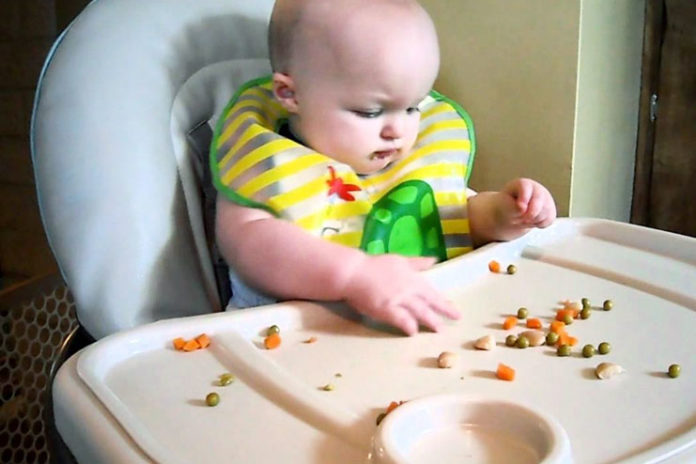Affiliate Disclaimer
Some links in this article are affiliate links. We may earn a small commission if you make a purchase through these links, at no extra cost to you. We only recommend products we find useful to our readersAs a mother I was always perplexed about my little one getting enough food. I always felt she was not eating well, up till I came up with this month by month baby feeding guide. The first year is very important for baby’s growth, and this is the time when most nutritional deficiencies occur. Every child is different in terms how they feed, some may be quick eaters and some day dreamers wont take a bit for hours. Therefore it is important to ensure adequate amount of servings are given per meal.
[Also Read: How to identify and treat postpartum depression]
The first few months when the kids are just nursed or formula fed, it is very important to make a feeding chart. This will help in noting down the exact feeding time-line. This is just a recommendation and children may end up consuming more or less based on their weight and activity status.
Month By Month Baby Feeding Guide For First Year
1Birth through 2 months

Feeding tips: If nursing then 10-15 minutes each side in one feeding. And if formula feeding then 1.5-2oz every feeding. In a day they must be served 15-18oz. This may not be the same everyday. But keep offering around the same amount. Keep increasing by 2-4 oz in a week.
Precautions: The child’s head must be raised above on a pillow or on your laps while feeding. The bottle must touch the nose and hold firm while feeding. Use bottles with air vent that have least chances of colic. Do not forget to burp the child every time you feed.
23 to 6 months

-
- Child can hold head upright
-
- She can sit in a booster or highchair
-
- Is growing well and weighs around 13 lbs
-
- Starts clinching spoons or toys in mouth
-
- Can move food from front to back in the mouth
- Doesn’t seem full with milk or formula
Feeding tips: 28-36oz of breast milk or formula in a day, spread over 6-8 servings. Do not serve more than 8 oz at a time. Start with solids if the child meets AAP readiness scale.
3How to introduce solids

Precautions: Keep the head upright when giving solids. don’t give more than 1.5-2 oz at a time. Remember the child will be exploring the spoon and taste aspects more than associate it with food. So be patient. Check for allergies.
46 to 9 months

Feeding Tips: 36-40 oz of breast milk or formula in a day in 8-10 oz servings every time. Pureed foods and cereals mixed with milk. Cows milk must not be given before age 1. Give cheese, tofu, unsweetened yogurt and pureed meat. Introduce one food at a time and wait for 3-5 days before trying new food. Make a schedule and alternate between solids and milk.
Precautions: Give tummy time and gripe water to aid digestion and contain the food related re-fluxes. Make the child’s day full of activities and fun, the more physical momentum the greater will be the food acceptance. Children take 10-15 times of feeding to understand the taste of a particular food. Don’t give up when child refuses, keep trying.
59 to 12 months

Feeding Tips: 28-32oz of milk or formula in 3 servings. 2oz of fruit or vegetable puree 3 times a day. Finger foods or mashed foods 2 times around 2 teaspoon per serving. Remember to include more proteins and iron rich foods. Keep check on baby’s daily activity plan and continue to introduce more and more new foods.
Precautions: give more playtime to the child and keep up with her feeding chart. Offer bottle or sippy and let the child herself feed. The sooner she learns to eat food by herself, easier the meal times will be. Check on the nutritive values and keep adding more proteins and vitamins to her meals.
There is no rule of thumb specifying exact quantities of food to be taken. Just remember your child is undergoing several developmental changes and growth spurts. Keep helping her explore and enjoy each day. ‘Month By Month Baby Feeding Guide For First Year’ is based on my experiences as a mother, do check with your pediatrician for a detailed insight. Also check with food related allergies in your child. Enjoy as your child reaches all her milestones, there is nothing more fulfilling like seeing your child grow each day.
Minu Manisha







































